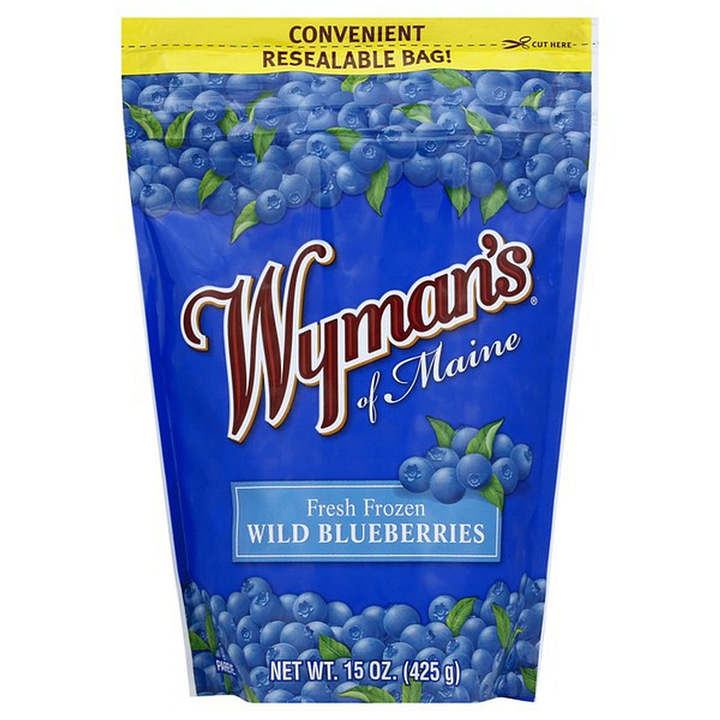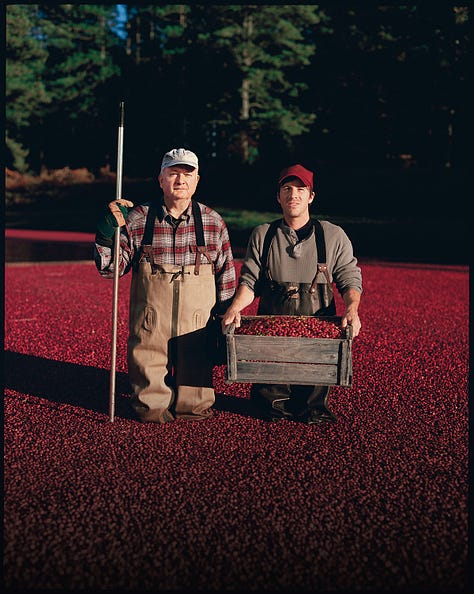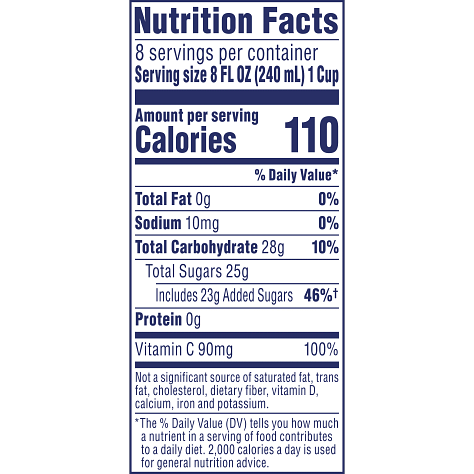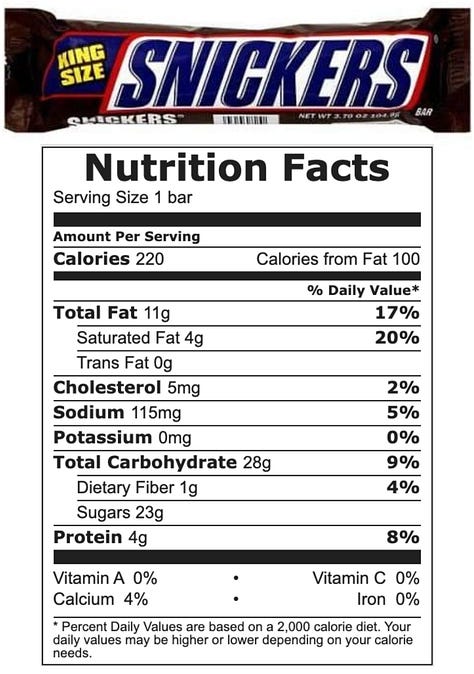Spam Series #3: Wyman's Wild Blueberries
I'm livid (free bad news)
It came to my attention today that the wild blueberries I’ve been eating for years, gushing and raving about, recommending, and generally spreading the GOSPEL about are a scam.
By “scam”, I mean capitalizing on misleading language to deceive the public. This article should be titled “scam” series instead of “spam” because obviously blueberries are not Spam, but real food and supremely healthy. I’m not saying anyone should stop eating blueberries. I’m just irateeee about this situation, and at our food system. Like why is raw milk (I.e., milk) banned, but Red 40 and unregulated blueberry tycoons can live above the law. SMH. Grocery shopping is already hard enough for the American consumer—we don’t need another misrepresented product, label or claim.


Wyman’s Wild Blueberries are not actually “wild”, but farmed and sprayed with pesticides. Apparently, “wild blueberry” is a cultivated species, not just a blueberry that grows in the wild (k). I knew Wyman’s wasn’t organic, but I assumed it didn’t require labeling as anything grown in the wild by definition means it is untouched by farming practices???
backstory — Wyman’s was almost sued in 20051 for violating the Clean Water Act by spraying aerial pesticides into unauthorized lakes, ponds and streams including the Narraguagus River, threatening endangered salmon, other species and the environment. They ceased spraying from the air, but continued the pesticide buffet using ground-level systems. They were applauded and praised for this groundbreaking compliance despite the fact that it took a potential lawsuit to get them to adhere to the policy.

This discovery is so utterly displeasing to me in part because deep down, I knew something wasn’t right. I always felt a nagging suspicion in the back of my mind about these big, bootylicious bags of blueberries… why were they so abundant? how can this many blueberries grow in the wild with no interventions? why is Wyman’s available at every single store, and expanding into strawberries, mixed blends, mangos and even kale? It reeked of capitalism.
Wyman’s didn’t overtly lie, they just omitted the truth and I gladly believed them. I wanted to root for Wyman’s, so I let myself look past the red flags… I crafted a shiny vision of Mr. Wyman as a Burt’s Bees-adjacent, humble Mainer, out there picking wild bluebs in his galoshes. While I don’t think I’m alone in romanticizing Maine lore, weaponizing Maine culture for financial means doesn’t sit right with me. It’s also possible I conflated Wyman’s with the Ocean Spray guys, knee-deep in the cranberry bog as if they don’t sell glorified Coca-Cola.



Regardless of pesticide use, wild blueberries are very healthy (2x the antioxidant activity of regular bluebs!), and they’re great at removing stubborn toxins from the body like heavy metals. Yet, we know that blueberries are prone to stubborn pesticide residue. Year after year of testing pesticide levels on produce has shown that regular blueberries are consistently among the Dirty Dozen, a list of foods with the highest pesticide residue after washing. The data continues to demonstrate that blueberries are a vulnerable category where buying organic matters.
In response to regular blueberries making the Dirty Dozen list in 2010, the Portland Press Herald noted a key concern: “the federal government doesn’t collect pesticide residue data for wild blueberries… some of Maine’s larger growers do track this information, but it is not released to the public.”2 So, we know that regular blueberries pose a serious risk, but little old ~wild blueberries~ are able to fly under the radar, unregulated, and protected by superfood status. When people purchase overpriced wild blueberries positioned as a premium health food product, they should know the risks involved with non-organic blueberries still apply.
Rant aside, I am not writing this to tell anyone not to buy blueberries, or even not to buy Wyman’s Wild Blueberries. If I had the choice, I might still choose Wyman’s wild blueberries over regular blueberries, organic or not. It just stubbornly pisses me off that they can get away with misrepresenting their practices. Although the farms owned by Wyman’s did not plant the majority3 of their wild blueberry bushes, they intervene in ways that potentially harm the public. Companies do this all the time, but they don’t try to hide it or pretend to be something they’re not (something better). Or, if they do, they don’t often get away with it. It’s the PRINCIPLE!!!!
The great news is that a better alternative exists! ORGANIC WILD BLUEBERRIES. For anyone sharing in my neurotic chagrin, if you feel so inclined, purchase these instead of Wyman’s. I’ve seen Woodstock and Whole Foods versions. Even better, if you want to support small businesses (and probably the best product out there), order them from local farms or other Maine growers like these:
check your local health food stores, or google “organic wild blueberries near me”
“Second Maine Blueberry Grower Agrees to Immediately Halt All Aerial Spraying of Pesticides”. Beyond Pesticides, 14 Apr. 2005, www.beyondpesticides.org/archive/daily-news-archive/2005/file1113. Accessed 16 May 2024.
Kamila, Avery Yale. “Natural Foodie: Cultivated Blueberries Land on the ‘dirty Dozen’ List.” Portland Press Herald, 12 May 2010, www.pressherald.com/2010/05/12/cultivated-blueberries-land-on-the-dirty-dozen-list_2010-05-12/.
Miller, Erin. “Plants Take Root at the Wyman’s Wild Blueberry Research and Innovation Center.” UMaine News, University of Maine, 19 Apr. 2023, umaine.edu/news/blog/2023/04/19/plants-take-root-at-the-wymans-wild-blueberry-research-and-innovation-center/.




